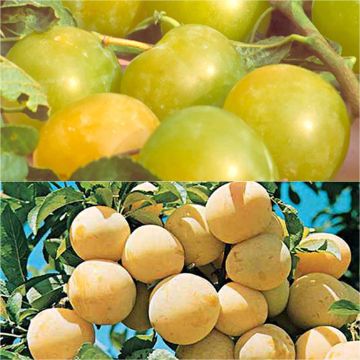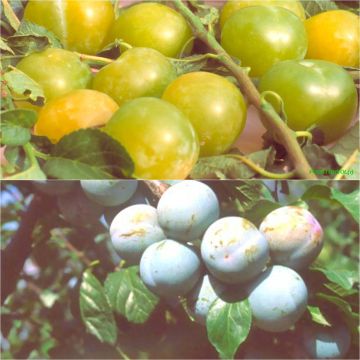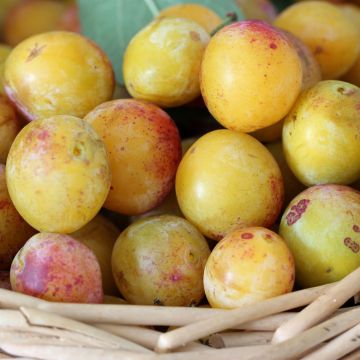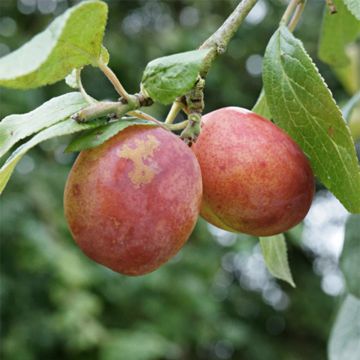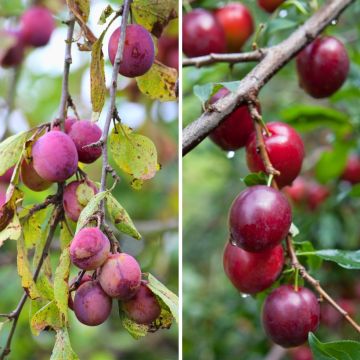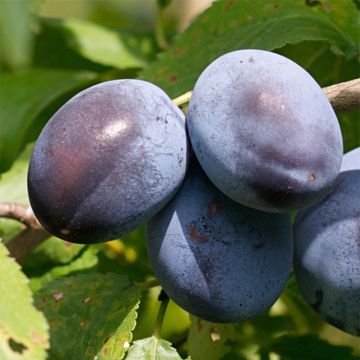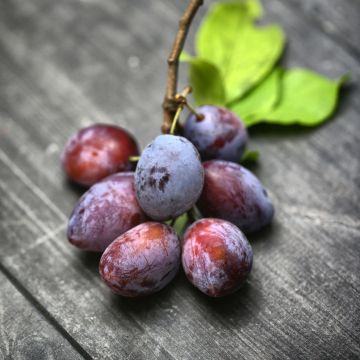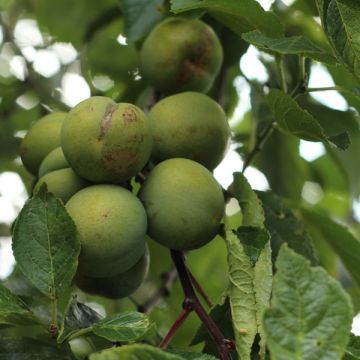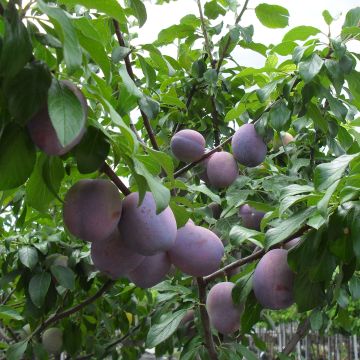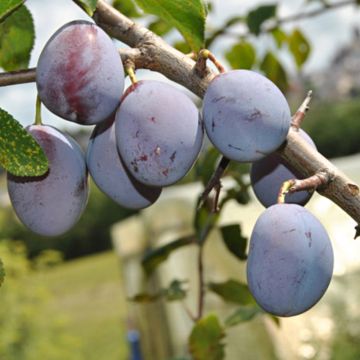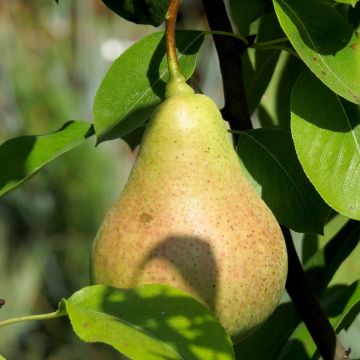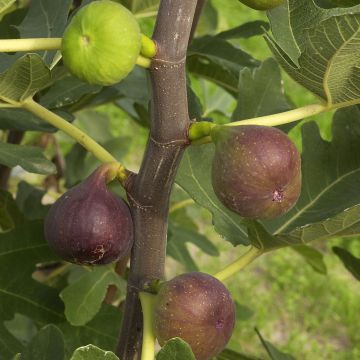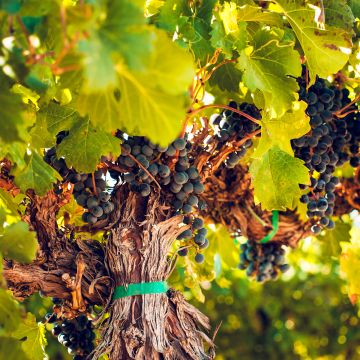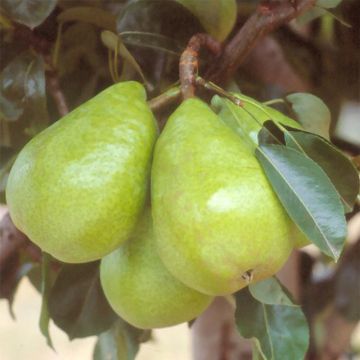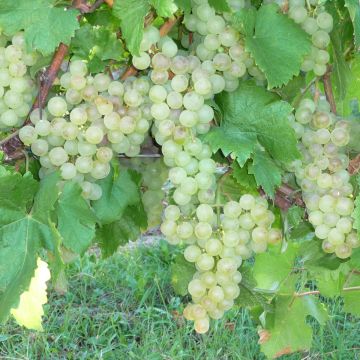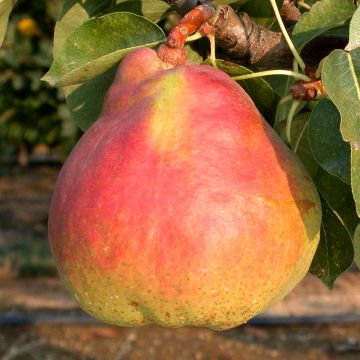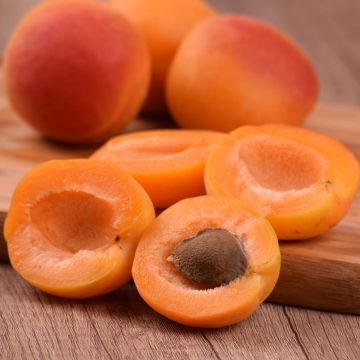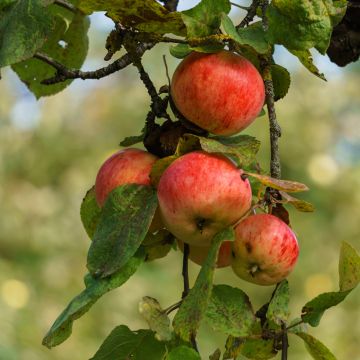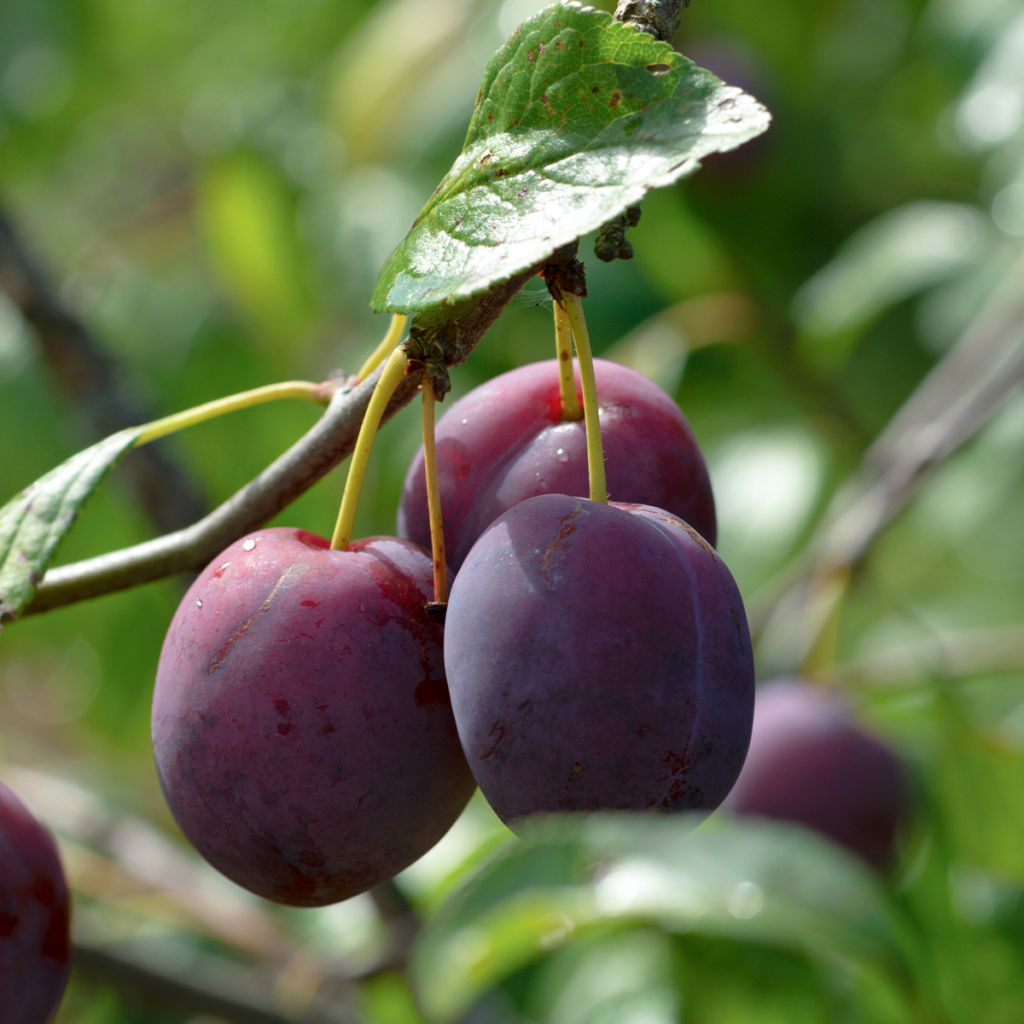

Prunus domestica Mr. Hâtif - Common plum
Prunus domestica Mr. Hâtif - Common plum
Prunus domestica Mr. Hâtif
European plum, Common plum, Garden plum
Special offer!
Receive a €20 voucher for any order over €90 (excluding delivery costs, credit notes, and plastic-free options)!
1- Add your favorite plants to your cart.
2- Once you have reached €90, confirm your order (you can even choose the delivery date!).
3- As soon as your order is shipped, you will receive an email containing your voucher code, valid for 3 months (90 days).
Your voucher is unique and can only be used once, for any order with a minimum value of €20, excluding delivery costs.
Can be combined with other current offers, non-divisible and non-refundable.
Home or relay delivery (depending on size and destination)
Schedule delivery date,
and select date in basket
This plant carries a 6 months recovery warranty
More information
We guarantee the quality of our plants for a full growing cycle, and will replace at our expense any plant that fails to recover under normal climatic and planting conditions.
Description
Prunus domestica Monsieur Hâtif (or Blauwe Wijn in Flemish) is a rather vigorous variety of Plum tree, forming a small bush with an upright and spreading habit. Its spring flowering is white and decorative, attracting bees. They develop during the summer into elongated globular plums, with a beautiful purple colour and a slight whitish bloom, ready to be harvested from mid-July to August. Their flesh is fine, melting, juicy, and has a pleasant taste. They can be consumed fresh, as well as in desserts or compotes. For better pollination, plant another variety nearby, as Monsieur Hâtif is only partially self-fertile.
The Plum trees belong to the vast Rosaceae family, which includes most of our temperate climate fruit trees (Apple trees, Pear trees, Apricot trees, Peach trees, Cherry trees, Quince trees...) as well as small fruits (Blackberries, Raspberry bushes, Strawberry plants). The Prunus genus itself is extremely diverse, with over 300 species, including both fruit-bearing trees (Almond trees, Peach trees...) and ornamental trees and shrubs. Prunus domestica is probably native to Asia Minor (Syria) and would have been introduced to Rome, along with many other species, as a result of Roman conquests. According to some authors, its introduction to Europe may be more linked to the Crusades, who really knows?
The "Monsieur Hâtif" plum tree (also known as "Monsieur du Roi") forms a small bush with a slightly spreading habit, reaching a height of 4 to 6 metres (13 to 20 feet) and a width of about 4 metres (13 feet). This variety blooms in April, producing clusters of simple white flowers with 5 petals, which attract bees. This plum tree is only partially self-fertile, and its pollination will be improved by the proximity of another variety. It is advisable to choose for this purpose the varieties 'Victoria', which is very productive and has large fruits, 'Opal', which is vigorous and early, or Reine Claude d'Oullins, which is vigorous and highly fertile. In the case of cross-pollination, the production is quite abundant but fluctuates from one year to another, as this variety is sensitive to alternate bearing. Once pollinated, the flowers develop into drupes, fleshy fruits with stones, commonly called plums, during the summer. They ripen from mid-July to August and can be harvested at that time, it is advisable not to let them overripen. These fruits can be consumed fresh from harvest and can also be used in pies or compotes. Plums are refreshing fruits and relatively low in calories, rich in vitamin E.
Hardy down to -23°C (-9.4°F), this variety grows in full sun, in ordinary, well-drained soil, neutral to alkaline, and rather moist. It is an easy-to-grow tree, not very demanding once well established.
This moderately growing Plum tree will find its place in most gardens. Plant another variety like Reine-claude de Bavay to allow cross-pollination and improve your harvests. To enjoy delicious fruits throughout the season, plant Cherry trees like the Bigarreau Hedelfingen (non-self-fertile, to be planted with 'Summit' or 'Van'). If you have enough space, install Apple trees to enjoy fruits throughout autumn, as well as Pear trees. And for the end of the season, indulge yourself with a Persimmon tree that will delight you with delicious persimmons from October to December.
Report an error about the product description
Prunus domestica Mr. Hâtif - Common plum in pictures
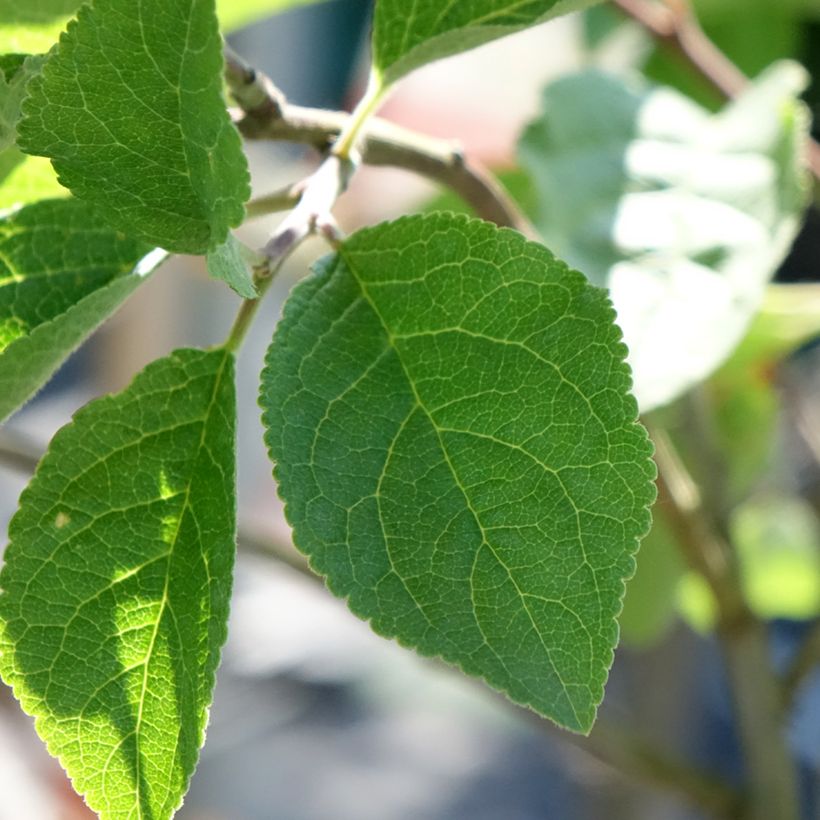

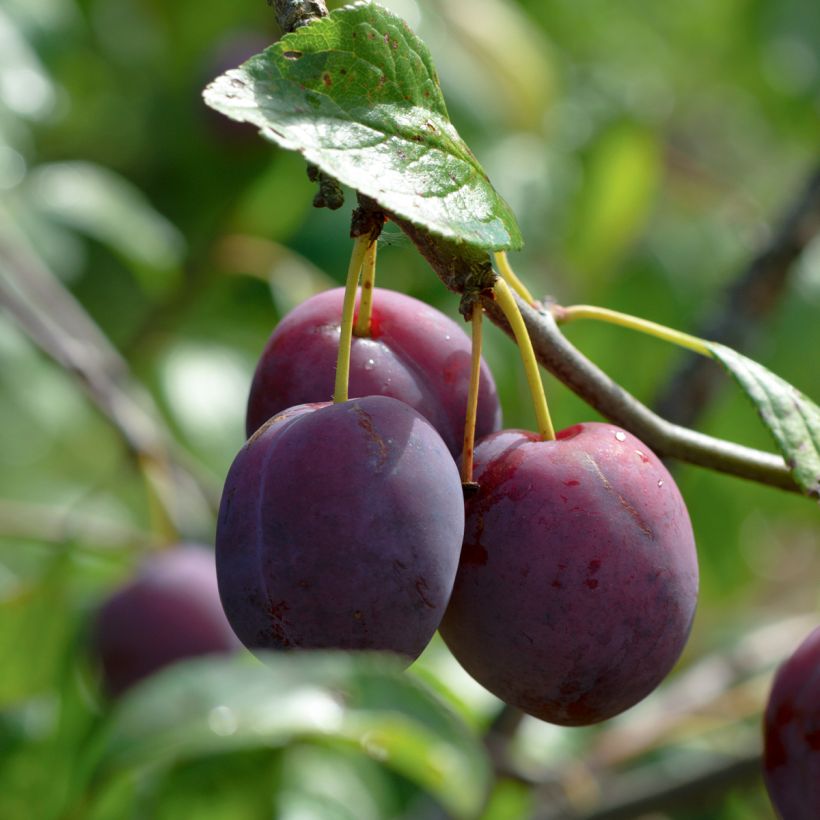

Plant habit
Fruit
Flowering
Foliage
Botanical data
Prunus
domestica
Mr. Hâtif
Rosaceae
European plum, Common plum, Garden plum
Cultivar or hybrid
Other Plum Trees
View all →Planting and care
This Plum tree preferably grows in deep, loose, not too dry clay-limestone soil. It can adapt to other types of soil, however, it is quite demanding in terms of sunlight. Hardy (down to approximately -23°C (-9.4°F)), it appreciates continental climates with distinct seasons, but can grow almost anywhere.
Dig a planting hole at least 50 cm (20in) on all sides and even more, this tree likes deep soils. It also appreciates some humidity, so make sure to water it regularly in summer and autumn during the first years. Once well rooted, it is a resistant tree, not very susceptible to diseases like lead and moniliosis, and not demanding.
Planting period
Intended location
Care
This item has not been reviewed yet - be the first to leave a review about it.
Similar products
Haven't found what you were looking for?
Hardiness is the lowest winter temperature a plant can endure without suffering serious damage or even dying. However, hardiness is affected by location (a sheltered area, such as a patio), protection (winter cover) and soil type (hardiness is improved by well-drained soil).

Photo Sharing Terms & Conditions
In order to encourage gardeners to interact and share their experiences, Promesse de fleurs offers various media enabling content to be uploaded onto its Site - in particular via the ‘Photo sharing’ module.
The User agrees to refrain from:
- Posting any content that is illegal, prejudicial, insulting, racist, inciteful to hatred, revisionist, contrary to public decency, that infringes on privacy or on the privacy rights of third parties, in particular the publicity rights of persons and goods, intellectual property rights, or the right to privacy.
- Submitting content on behalf of a third party;
- Impersonate the identity of a third party and/or publish any personal information about a third party;
In general, the User undertakes to refrain from any unethical behaviour.
All Content (in particular text, comments, files, images, photos, videos, creative works, etc.), which may be subject to property or intellectual property rights, image or other private rights, shall remain the property of the User, subject to the limited rights granted by the terms of the licence granted by Promesse de fleurs as stated below. Users are at liberty to publish or not to publish such Content on the Site, notably via the ‘Photo Sharing’ facility, and accept that this Content shall be made public and freely accessible, notably on the Internet.
Users further acknowledge, undertake to have ,and guarantee that they hold all necessary rights and permissions to publish such material on the Site, in particular with regard to the legislation in force pertaining to any privacy, property, intellectual property, image, or contractual rights, or rights of any other nature. By publishing such Content on the Site, Users acknowledge accepting full liability as publishers of the Content within the meaning of the law, and grant Promesse de fleurs, free of charge, an inclusive, worldwide licence for the said Content for the entire duration of its publication, including all reproduction, representation, up/downloading, displaying, performing, transmission, and storage rights.
Users also grant permission for their name to be linked to the Content and accept that this link may not always be made available.
By engaging in posting material, Users consent to their Content becoming automatically accessible on the Internet, in particular on other sites and/or blogs and/or web pages of the Promesse de fleurs site, including in particular social pages and the Promesse de fleurs catalogue.
Users may secure the removal of entrusted content free of charge by issuing a simple request via our contact form.
The flowering period indicated on our website applies to countries and regions located in USDA zone 8 (France, the United Kingdom, Ireland, the Netherlands, etc.)
It will vary according to where you live:
- In zones 9 to 10 (Italy, Spain, Greece, etc.), flowering will occur about 2 to 4 weeks earlier.
- In zones 6 to 7 (Germany, Poland, Slovenia, and lower mountainous regions), flowering will be delayed by 2 to 3 weeks.
- In zone 5 (Central Europe, Scandinavia), blooming will be delayed by 3 to 5 weeks.
In temperate climates, pruning of spring-flowering shrubs (forsythia, spireas, etc.) should be done just after flowering.
Pruning of summer-flowering shrubs (Indian Lilac, Perovskia, etc.) can be done in winter or spring.
In cold regions as well as with frost-sensitive plants, avoid pruning too early when severe frosts may still occur.
The planting period indicated on our website applies to countries and regions located in USDA zone 8 (France, United Kingdom, Ireland, Netherlands).
It will vary according to where you live:
- In Mediterranean zones (Marseille, Madrid, Milan, etc.), autumn and winter are the best planting periods.
- In continental zones (Strasbourg, Munich, Vienna, etc.), delay planting by 2 to 3 weeks in spring and bring it forward by 2 to 4 weeks in autumn.
- In mountainous regions (the Alps, Pyrenees, Carpathians, etc.), it is best to plant in late spring (May-June) or late summer (August-September).
The harvesting period indicated on our website applies to countries and regions in USDA zone 8 (France, England, Ireland, the Netherlands).
In colder areas (Scandinavia, Poland, Austria...) fruit and vegetable harvests are likely to be delayed by 3-4 weeks.
In warmer areas (Italy, Spain, Greece, etc.), harvesting will probably take place earlier, depending on weather conditions.
The sowing periods indicated on our website apply to countries and regions within USDA Zone 8 (France, UK, Ireland, Netherlands).
In colder areas (Scandinavia, Poland, Austria...), delay any outdoor sowing by 3-4 weeks, or sow under glass.
In warmer climes (Italy, Spain, Greece, etc.), bring outdoor sowing forward by a few weeks.






























